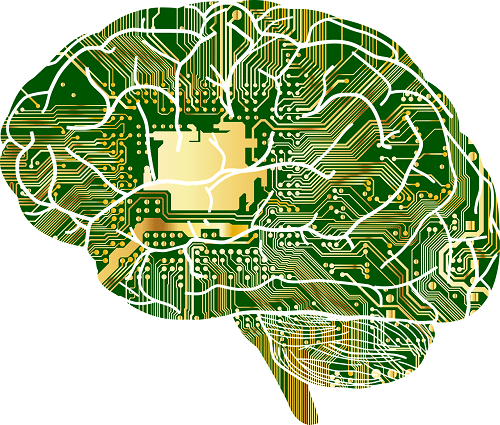You may think of engineering as being all about machines and computers, but did you know there’s a human side to it, too? One growing multidisciplinary field that pulls together human psychology and engineering concepts is usability engineering.
Understanding the Field of Usability Engineering
Usability engineering falls under the larger umbrella of engineering psychology. This field focuses on how people interact with machines, tasks and environments, according to the American Psychological Association. In the case of usability engineering, that interaction refers specifically to the way people use computers. Usability engineers make computer technology more intuitive and easier to use. They fix the bugs, error messages, missing links and confusing menu options that plague computer hardware and software as well as websites, the United States Bureau of Labor Statistics (BLS) reported.
IMAGE SOURCE: Pixabay, public domain
The word “usability” here means how efficient these computer applications and devices are to use. A usability engineer might streamline menus and tools so that users can accomplish goals in fewer steps, with less lag time and fewer extraneous details that distract users from their task. A usability engineer has to think about the needs and psychology of the “primary user,” or the people who will be using the product most, and decide how to make the hardware, software or site most straightforward for their purposes. However, they don’t just assume what the user would do with a device or program. Usability engineers gather research through interviews, questionnaires, design tests and observation of people using the software and analyze that data.
The field of usability engineering merges the creative problem-solving and computer skills of an engineer with a focus on human behavior.
Degree Options for Usability Engineers
Is usability engineering really a branch of engineering, or is it more closely related to psychology? It depends on who you ask. There are many pathways into the career of usability engineer, including multiple disciplines of engineering.
Given the importance of computer skills, it’s not unusual for candidates to enter the field of usability engineering from a background in computer or electrical engineering. Courses in usability engineering are often offered by a school’s software engineering department. Employers may also look for applicants with a degree in industrial engineering, because successful usability engineers have to understand the physical and cognitive processes of how humans work, specifically with computers. You may also find more specialized education programs, such as programs in human factors engineering and ergonomics or human-computer interaction. These programs are often, though not always, offered by engineering departments and taught by engineering faculty.
However, usability engineers can also come from very different backgrounds. Computer science and information science programs might seem like natural educational paths for a usability engineer.
Graduates of organizational, cognitive and experimental psychology degree programs may also find their niche as usability engineers, the BLS reported.
Usability Engineering Curriculum
What might you study in a program in usability engineering? Your classes may cover subjects ranging from rules for usable design to the use of task analysis and contextual inquiry to assess interfaces. You might learn about usability in design in terms that you have never before considered, like the physics and physiology of muscle strength and movements in the workplace. Coursework in human factors system design, human information processing and human physical capabilities is important, as are research courses in some programs.
If you think this combination of human behavior and technology might be the perfect fit for you, then you may wonder how advanced your degree would have to be to get started in the field. Again, there’s no set requirement. Some usability engineers have only a bachelor’s degree but gain experience in a variety of related jobs, such as tester, programmer and technical writer. Others go on to attain master’s degrees, graduate certificates or even Ph.D. degrees in specialized subject areas.
How much time it will take to complete your education in usability engineering depends on what kind of program you choose. In Master of Science programs in Human Factors Engineering and Ergonomics, you might be required to complete original research in addition to two years of study and to present your findings in a thesis. On the other hand, a graduate certificate program might require you to take just a few specialized classes.
Usability engineering isn’t to be confused with user experience design. While design matters to some degree, usability engineering has more to do with solving problems of efficiency than with aesthetics.
Related Resources:

